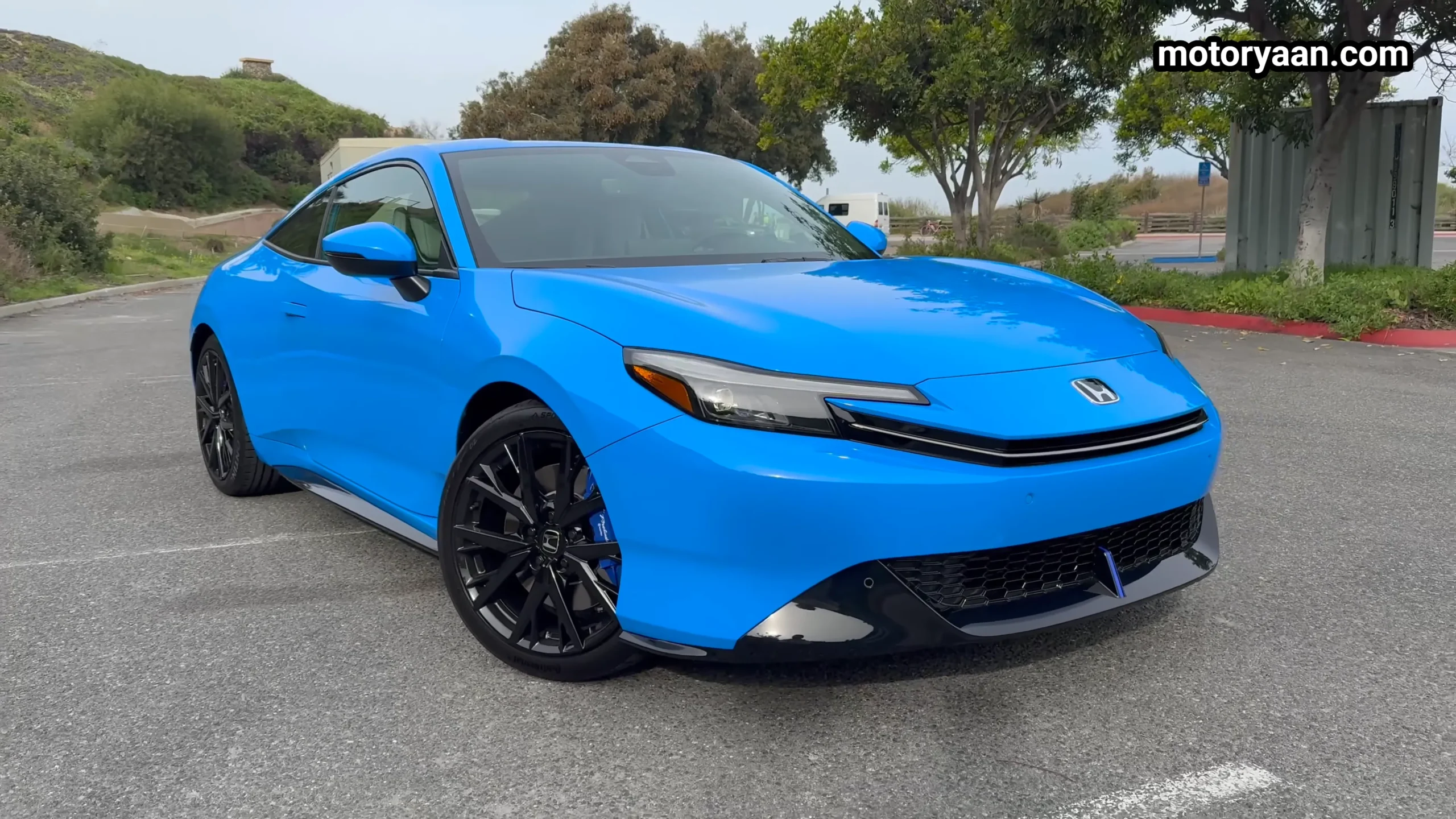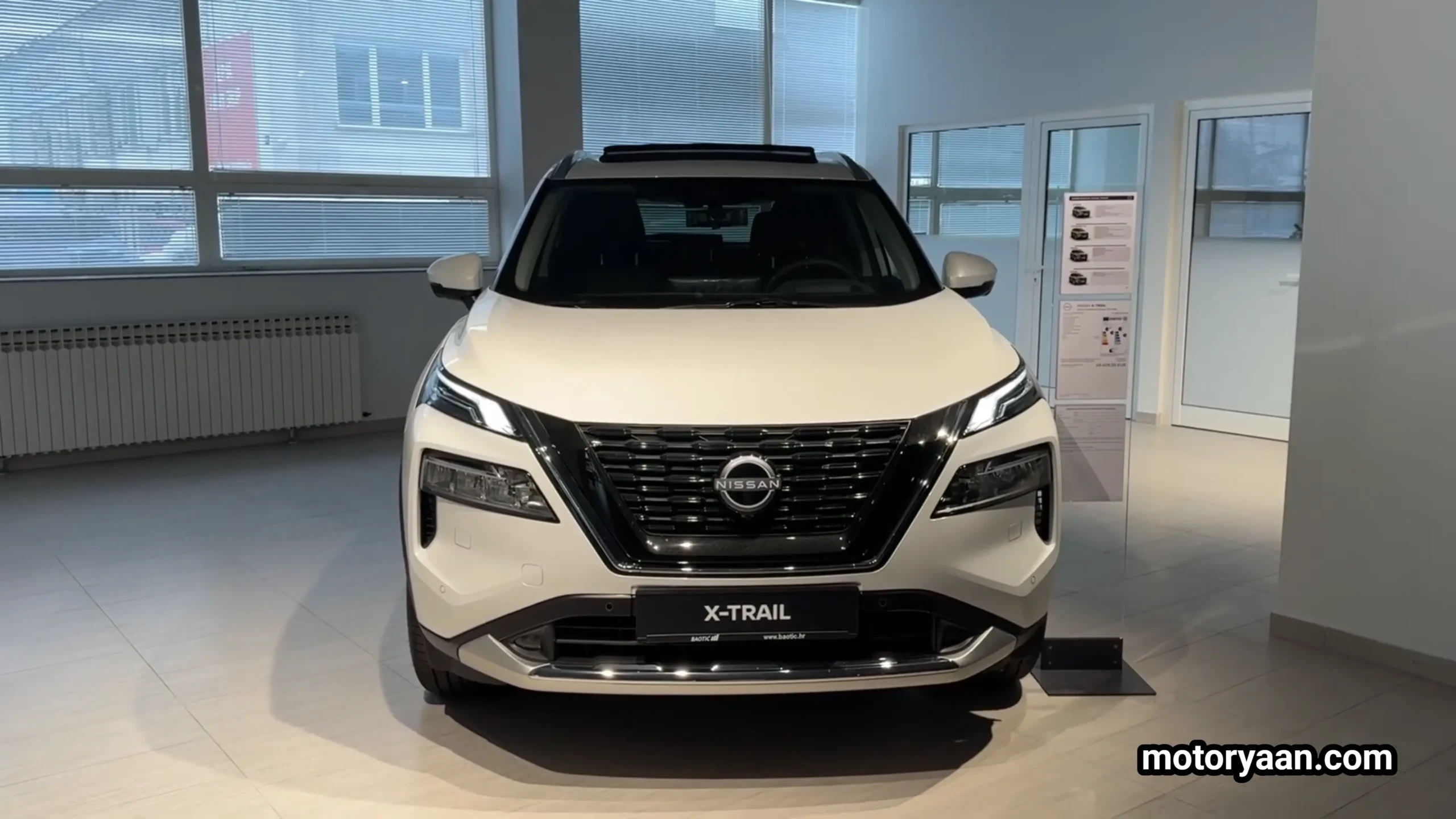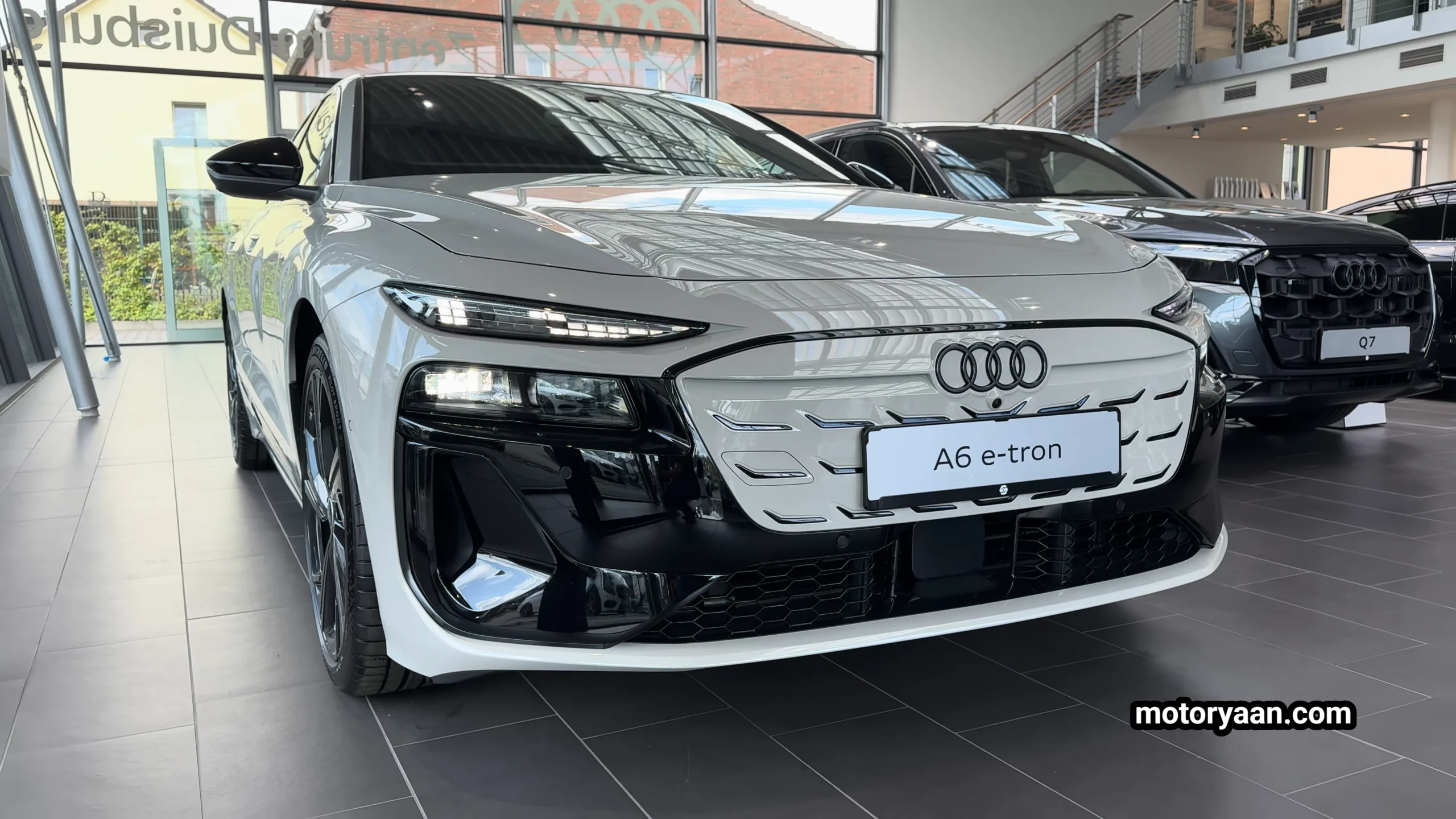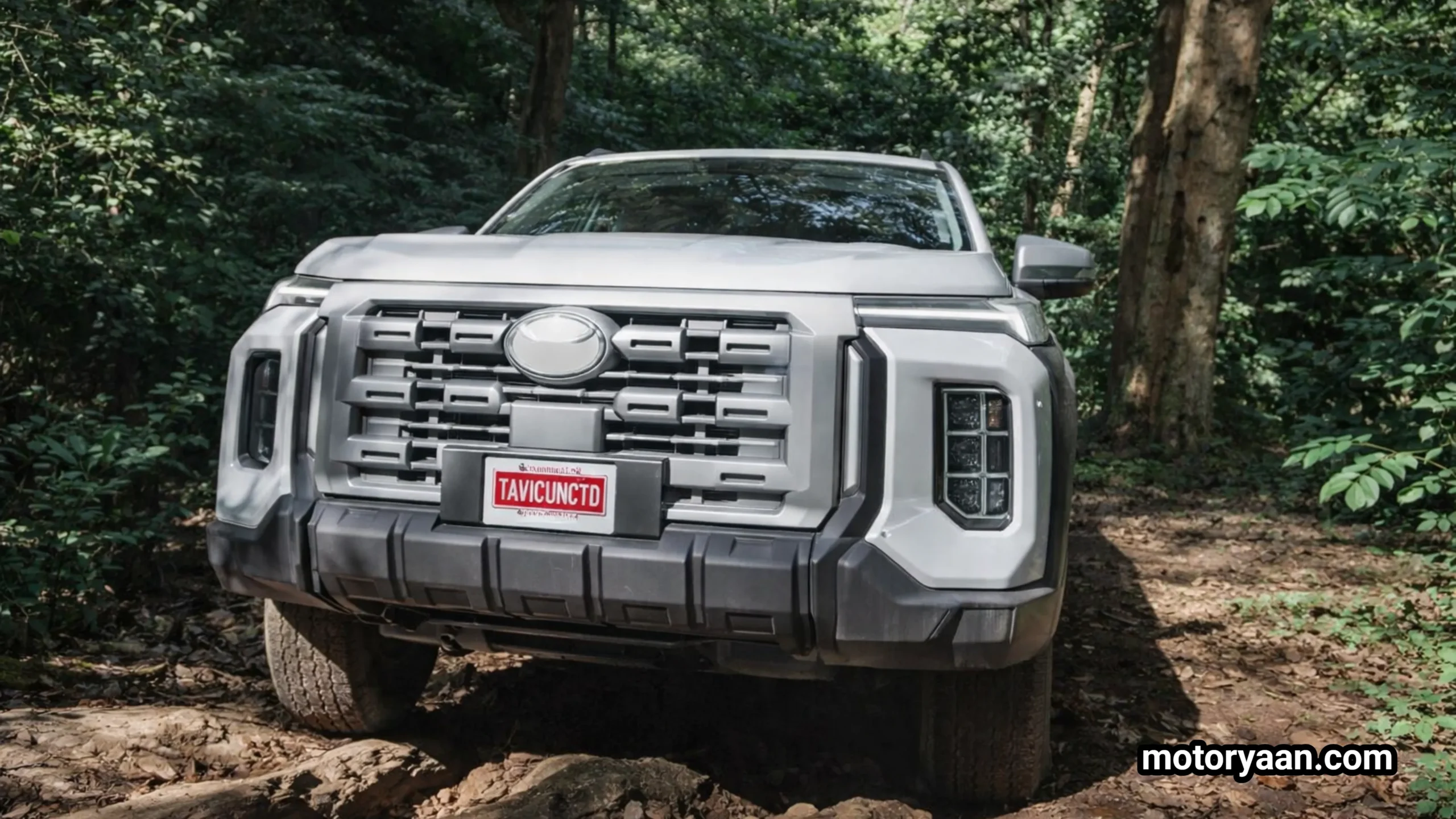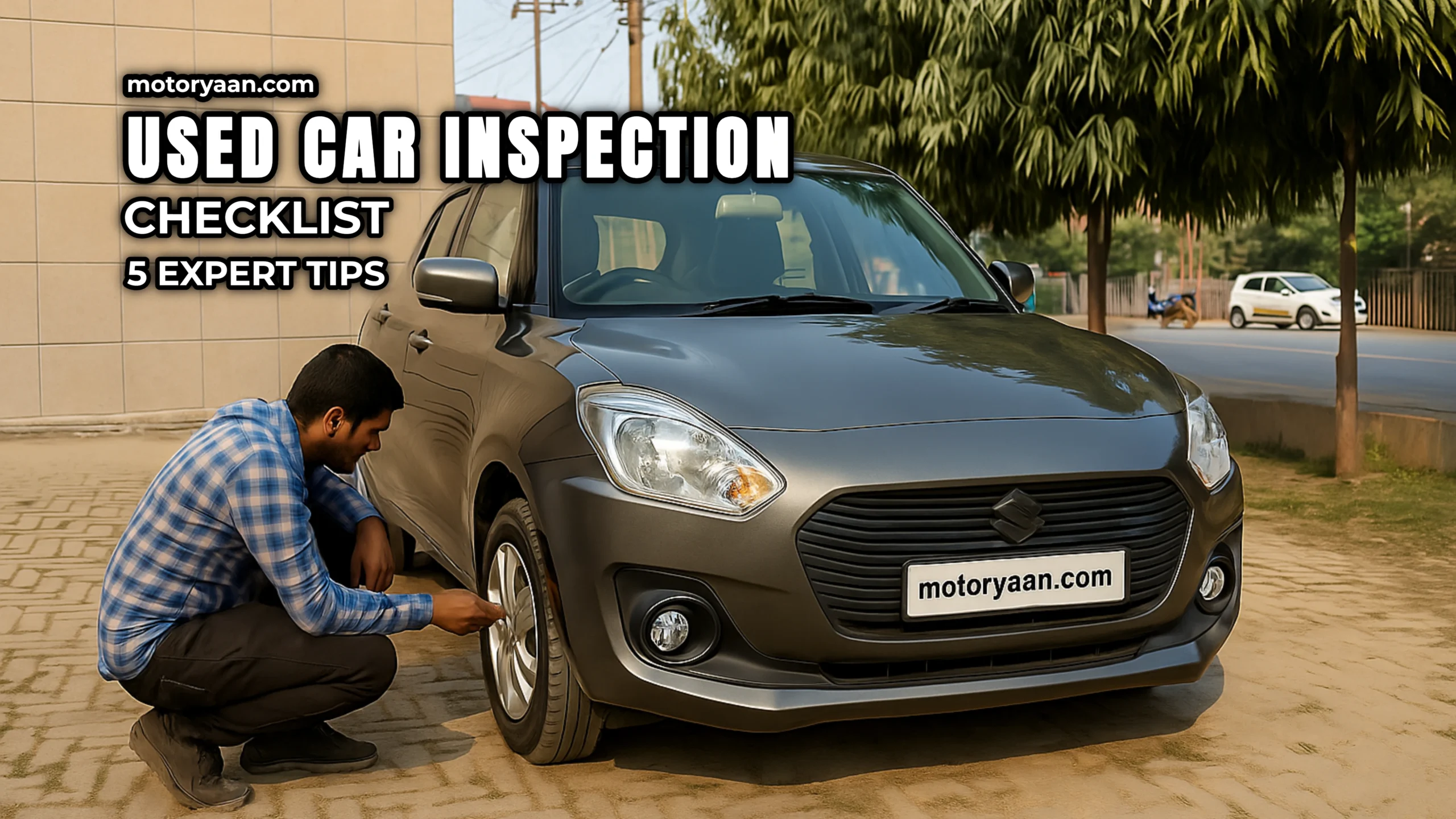iCar V23 Review
The iCar V23 is one of the most anticipated compact electric SUVs set to enter the Australian market. The brand plans to begin its local setup by the end of 2026, and the V23 could arrive in early 2027. The company is also exploring an ERV version with an extended range and a petrol motor, but the model shown here is fully electric.
In this detailed breakdown, we look at the exterior, interior, rear seat practicality, off-road behaviour, and the complete powertrain lineup based on the early test drive experience in China.
Design and Exterior
The iCar V23 takes a rugged and boxy approach, similar in spirit to the Suzuki Jimny but slightly bigger. The compact 4.22 metre length makes it easy to handle while still offering the visual stance of a small SUV.
Key Exterior Highlights
Aggressive front design with a large grille
Circular LED headlights
Level 2 autonomous driving hardware featuring millimetre wave radar
Robust bumper design
600 mm wading depth
43 degree approach angle
41 degree departure angle
210 mm ground clearance
The steeply raked windscreen and wide haunches give it a distinctive identity. In Australia, where boxy SUVs are popular, the V23 is expected to attract strong interest.
Side Profile
19 inch wheels styled to look like steel rims
Chaoyang tyres that are not ideal for off-roading
Flush door handles with mechanical operation
Prominent C pillar for a blocky appearance
Plastic side steps that slightly reduce breakover angle
Rear Design
The back is one of the most interesting elements. Instead of a spare wheel, the V23 has an external box that imitates the look of a spare wheel cover. Inside, it hides extra storage and interior lighting.
You also get:
Boxy LED rear tail lights
Side hinged tailgate
Deep boot floor with generous underfloor storage
Storage hooks, netting, and a household power socket
This layout makes the V23 surprisingly practical for its compact size.
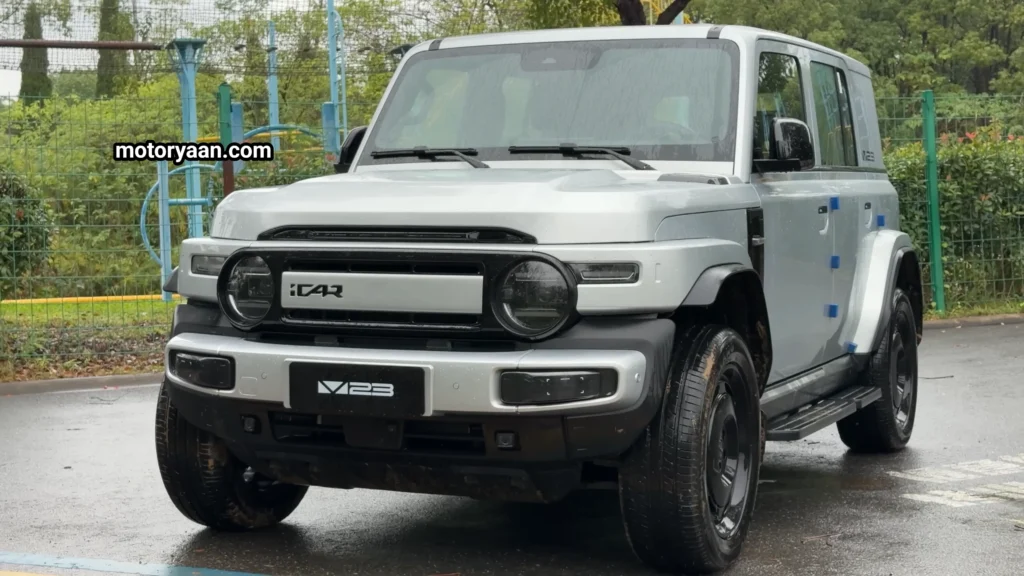
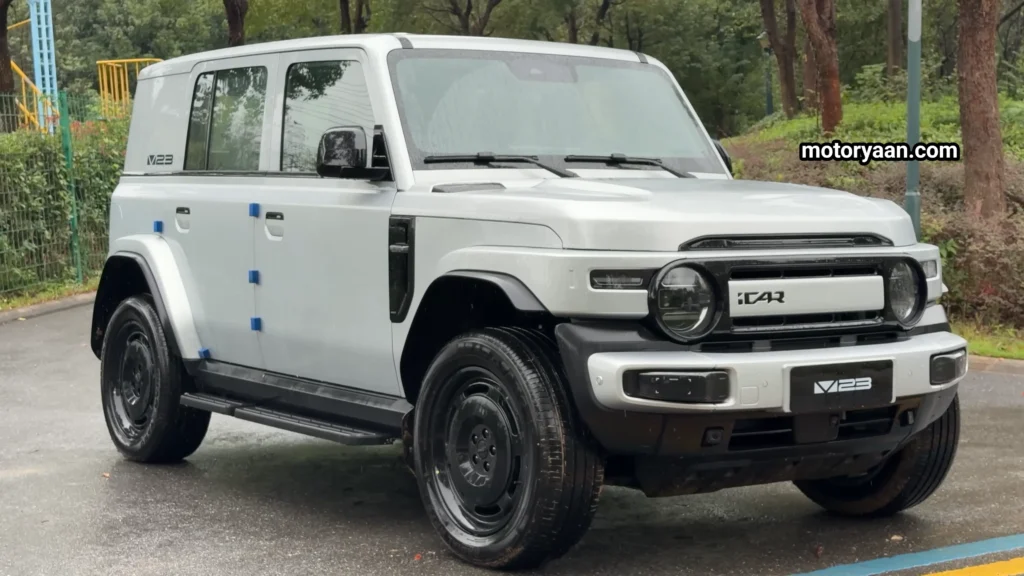
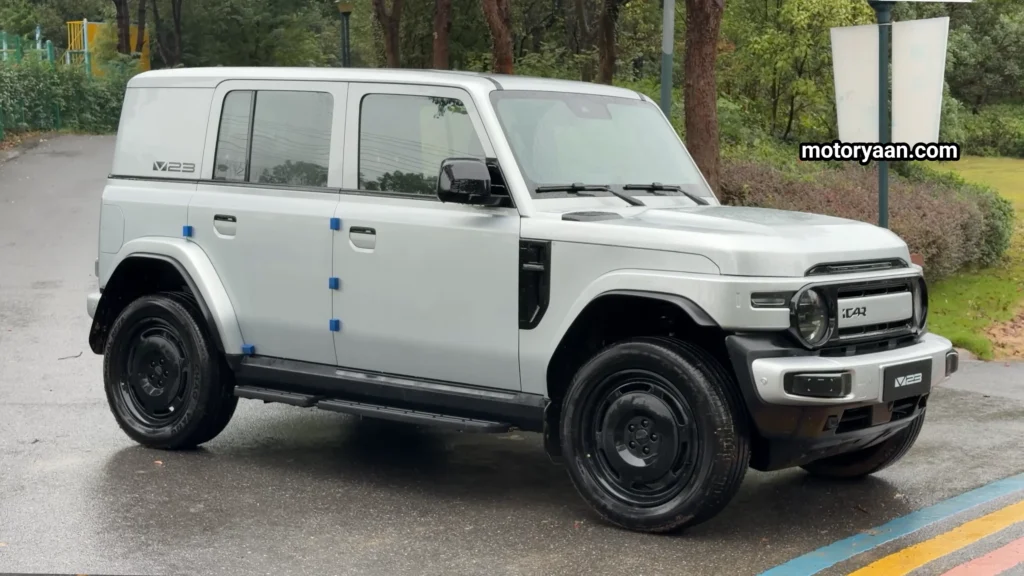

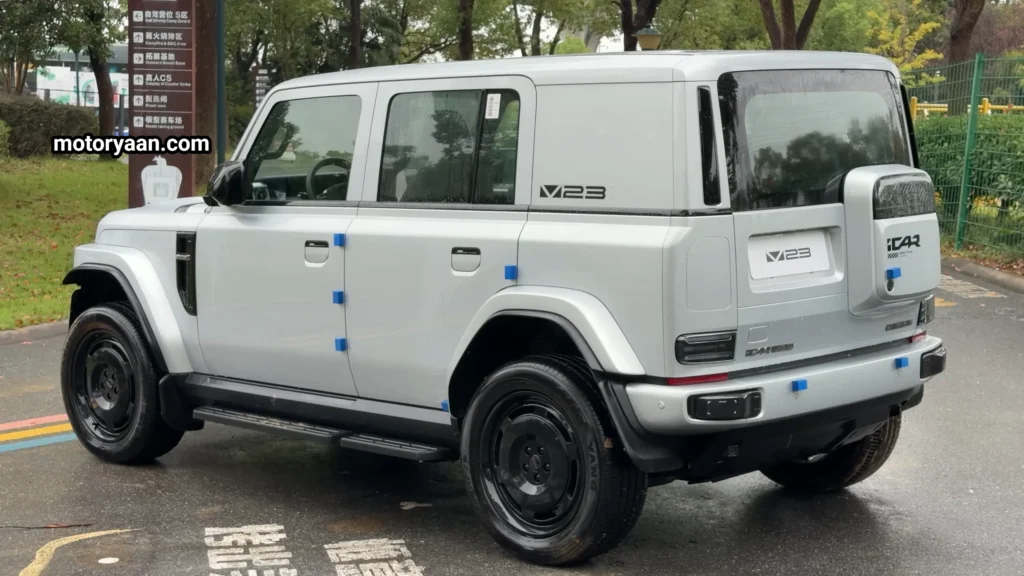
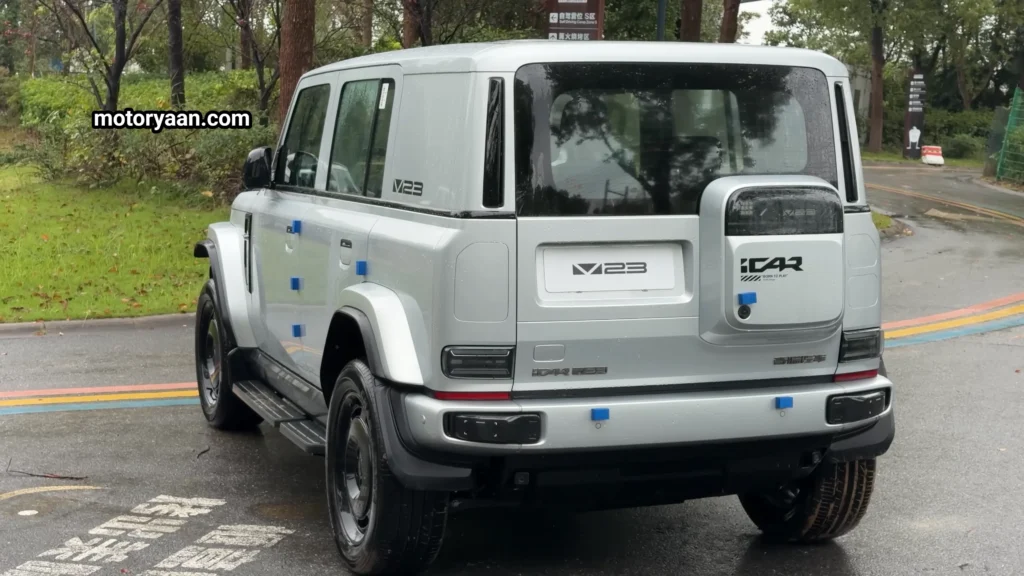
Interior and Features
The interior quality is impressive for the expected price of around 40,000 Australian dollars. The layout is clean, modern, and functional.
Cabin Highlights
Faux leather steering wheel
Minimalistic buttons that feel Tesla inspired
Small digital instrument display
Column-mounted gear selector to free up centre space
Dual cup holders, wireless charging tray, and open storage areas
Soft touch centre armrest with deep compartment
Two USB C ports and one USB A port
15 inch infotainment display
Sharp 360 degree camera
Drive mode selector knobs that have a premium, mechanical feel
Physical climate controls for temperature and fan speed
Overhead auxiliary switches for added functions
The materials feel soft and well-assembled. The layout is simple and easy to use. The seats look like modern lounge chairs and offer good comfort, although under-thigh support is limited.
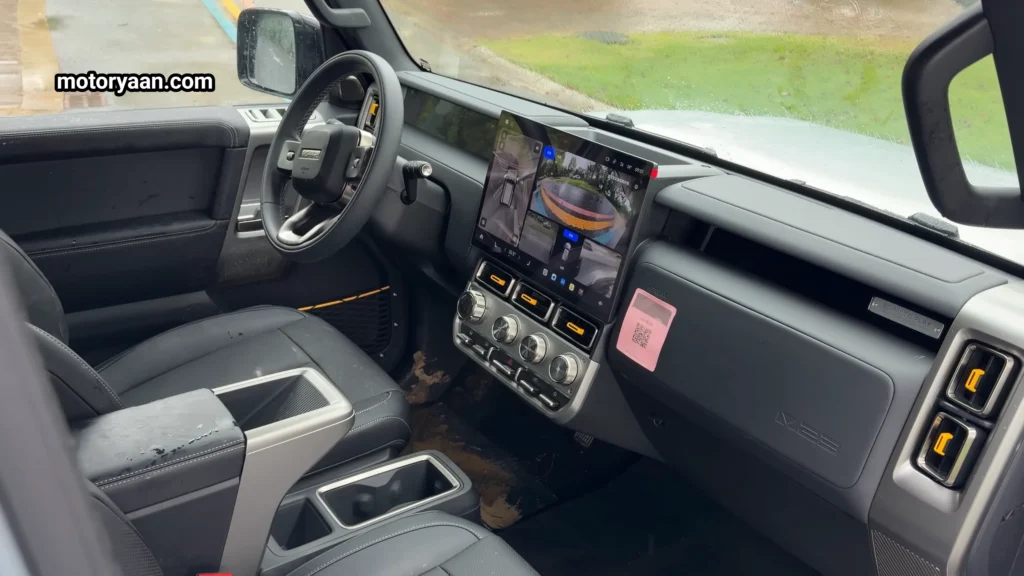
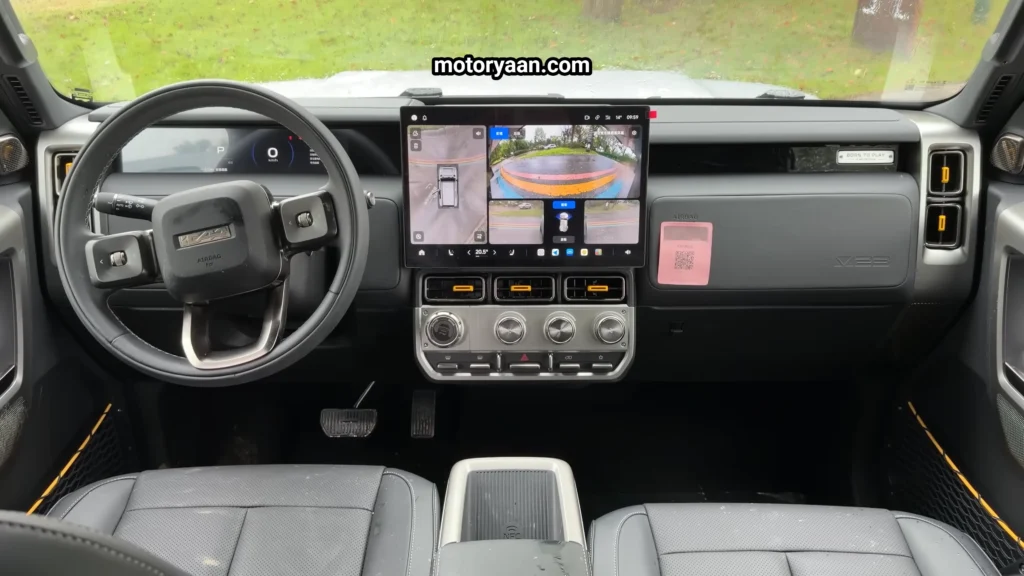
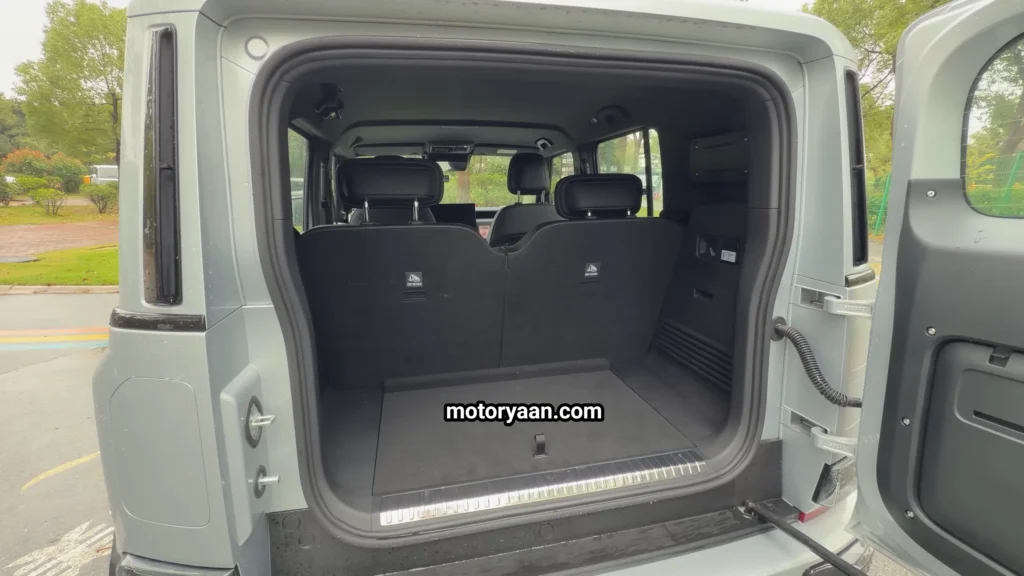
Rear Seat Experience
Despite its compact footprint, the rear seating area feels spacious.
Rear Seat Pros
Excellent legroom and headroom for a 5 ft 11 passenger
Comfortable seat cushioning
Clever hooks and storage nets
Additional roof mounted seatbelt provision in the China model
Rear Seat Cons
No rear AC vents
No rear USB ports
Australia will get only a four-seat layout
Overall, the back seats are comfortable and surprisingly roomy for this segment.
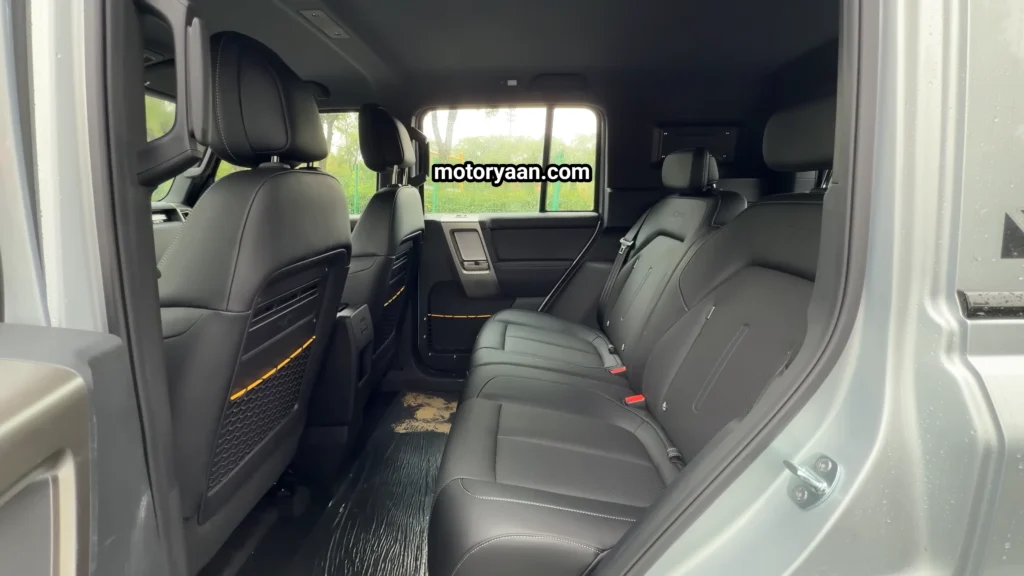
iCar V23 Powertrain Options
The V23 range includes rear-wheel-drive and all-wheel-drive options. Battery size, motor output, and range vary across variants.
RWD variants (Base models)
| Motor Output | Torque | Battery Options | Claimed Range (CLTC) | Realistic Range |
|---|---|---|---|---|
| 100 kW | 180 Nm | 47.3 kWh or 59.9 kWh (LFP) | 300 to 400 km | 200 to 300 km |
Efficiency is a drawback. Real-world consumption figures in China suggest up to 30 kWh per 100 km.
AWD variant
| Motor Output | Torque | Battery | Claimed Range (CLTC) | WLTP Estimate | Real-world Estimate |
|---|---|---|---|---|---|
| 155 kW | 292 Nm | 81.8 kWh NMC | 501 km | 400 km | 350 km |
The AWD system is software managed and not mechanically locked.
Driving Experience
The test drive was limited to a mud field in China, but a few things were clear.
Ride and Handling
Firmly sprung suspension
Light steering that sometimes feels too light
Easy to slide or drift due to motor calibration
Strong low-speed torque even on the base RWD variant
Off-road Ability
This is where the limitations show up.
Chaoyang tyres struggle on slippery surfaces
No mechanical locking differentials
Software based traction systems like Iguana AWD
Several test units got stuck in mild mud conditions
So, while it looks like a rugged SUV, it is not a proper off-road vehicle. It is far less capable than a Suzuki Jimny in challenging terrain.
Australian Launch Timeline
Brand operations expected to set up: Late 2026
Possible arrival of V23 in Australia: Early 2027
Expected price range: Around AUD 40,000
With its design, features, and road-friendly electric performance, the V23 is expected to attract strong demand.
Final Thoughts
The iCar V23 is a stylish, well-designed compact EV that focuses on everyday usability rather than hardcore off-roading. It offers a premium cabin, a unique exterior, modern features, and a price point that will appeal to many first-time EV buyers.
It is not a true off-road competitor to the Suzuki Jimny, but it has enough character and practicality to find its own space in the market. Once it lands in Australia, interest will likely be high thanks to its combination of looks, interior quality, and value.
If you are waiting for a small EV with bold styling and strong road presence, the iCar V23 is something you should keep an eye on.
2026 iCar V23 Frequently Asked Questions
What is the 2026 iCar V23?
The 2026 iCar V23 is a compact electric SUV with a boxy design, modern interiors, and multiple powertrain options. It is designed for daily use and light off roading.
When will the 2026 iCar V23 launch in Australia?
The brand is expected to begin operations in late 2026 and the 2026 iCar V23 could arrive in early 2027.
What are the design highlights of the 2026 iCar V23?
It comes with a rugged front end, circular LED headlights, a wide grille, 600 mm wading depth, 43 degree approach angle, 41 degree departure angle, and 210 mm ground clearance.
How is the interior of the 2026 iCar V23?
The SUV features a simple and functional cabin with a large 15 inch display, physical climate controls, a column mounted gear selector, a digital instrument screen, wireless charging, and multiple storage spaces.
How comfortable is the rear seat of the 2026 iCar V23?
The rear seats provide good headroom and legroom. The seat base is comfortable but Australia will get a four seat layout without rear AC vents or rear USB ports.
What are the powertrain options available?
The 2026 iCar V23 comes with rear wheel drive and all wheel drive options. The RWD versions use 47.3 kWh or 59.9 kWh batteries with a 100 kW motor. The AWD variant uses an 81.8 kWh battery with a 155 kW output.
What is the real world range of the 2026 iCar V23?
The RWD models deliver around 200 to 300 km in real use. The AWD variant can achieve around 350 km depending on conditions.
Is the 2026 iCar V23 good for off roading?
It has good ground clearance and off road angles but it lacks mechanical locking differentials. The soft tyres and software based traction system limit performance on slippery terrain. It is suitable for mild trails but not heavy off roading.
What is the expected price of the 2026 iCar V23 in Australia?
The expected price is around 40,000 Australian dollars depending on the variant.
Who should consider buying the 2026 iCar V23?
It is ideal for buyers who want a small EV with a bold design, premium cabin feel, good daily usability, and light adventurous capability.

